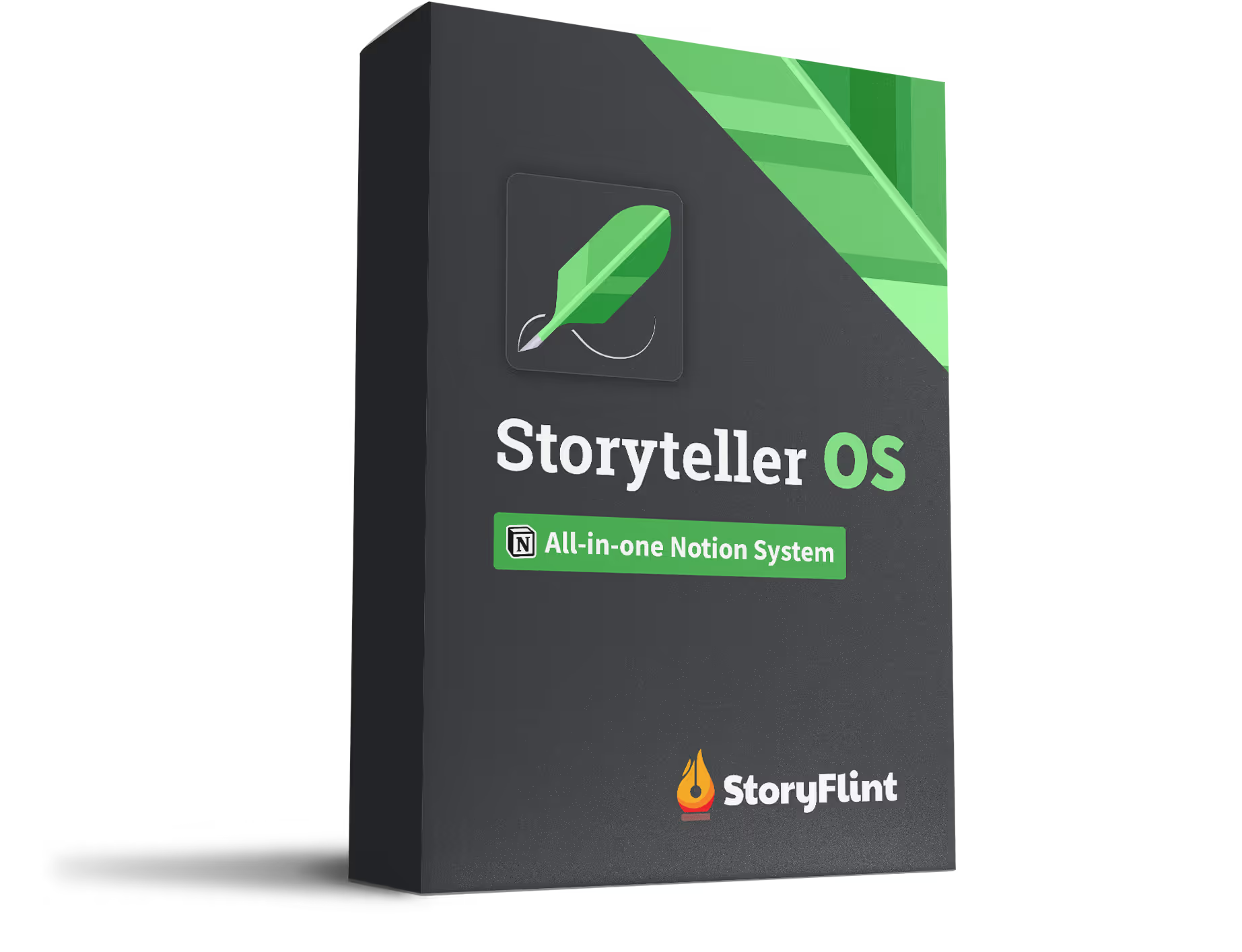Do you have this problem?
You have pages and pages of notes you've taken over the years spread out on different pages across Evernote, Google Docs, or whatever digital platform you use. All of these notes have been acquired from all the different articles you've read, videos you've watched, courses you've taken, seminars you've attended and it's all in one giant pile or it's organized in a convoluted mess of folders. You have a hard time remembering what you learned and you have an even harder time finding the valuable information you took note of.
I was totally there. I felt that frustration. Nothing I learned was easily accessible again after I wrote it down and stored it away. So what was the point of writing this stuff down if my notes were just as cluttered as my physical mind?
I needed to find a way to organize my knowledge outside of my brain in a way that was categorized, tagged, and flexible to view in different mindsets.
So I built my own personal knowledge management system using Notion.
What is a personal knowledge management system?
A personal knowledge management system is a way of organizing your knowledge and lessons you've learned in a way that's accessible and easy to refer back to. Think of the old-school method of having a filing cabinet with different tabs and folders for different subjects that has all your notes organized.
Good personal knowledge management systems make it easy for you to enter and organize your knowledge as well. It should create a productive workflow for you to gain knowledge, store knowledge, and recall knowledge easily.
Why is personal knowledge management important?
Anyone who wants to have productive life needs to have some kind of knowledge management system.
To solve the problems I mentioned at the beginning of this article, it's important to have such a system to organize your knowledge in a way your brain can't.
The three main reasons you should have a personal knowledge management system:
- Store and organize your learning content
- Refer back to learned lessons easily
- Use your organized knowledge to share with others
Store and organize your learning content
Consolidating all of your learning content from videos, articles, and seminars in one centralized place is a great way to create your own personal library. This allows you to take notes easily while reading and refer back to library items when using them as references for articles or research papers.
Refer back to learned lessons easily
Taking notes from what you learn or found useful from items in your library and housing them in a database tagged and categorized will allow you to access your knowledge easily. By breaking down what you learned into bite-sized lessons that are each tagged creates for you a second brain that you can organize every bit of knowledge and refer back to easily.
Share your organized knowledge
Having your knowledge organized and grouped into themes or areas can give you the advantage of sharing curated knowledge with specific audiences. For instance, if you're running a blog about underwater basket weaving, all the knowledge you've acquired in such a subject should be grouped or tagged accordingly for you to refer back to it fast and easily produce content for your audience.
Why use Notion for your personal knowledge management?
Notion is a growing software company that has built one of my favorite apps that I use every day for my personal and work life.

The most powerful thing about Notion's app is its databases. These databases allow you to sort and filter data, view and edit the same data in different areas of your workspace, and create relations and rollups to other databases.
Because of the powerful capabilities of Notion's databases, they are, in my opinion, the best and most flexible way to build a personal knowledge management solution customized to your needs. For me, Notion has become my personal knowledge management software.
The components of my personal knowledge management made in Notion
I built my personal knowledge management system from scratch in Notion. It is broken down into four databases:
- Library
- Knowledge Base
- Tags
- Topics

The Library
The Library database stores all the videos, articles, course notes, etc. that I clip from the internet. Each Library item can be categorized by Content Type and Topic.
The Knowledge Base
The Knowledge Base database stores all the bite-sized lessons and notes I take from Library items and allows me to tag them from the Tags database in order to categorize them.

Tags
I use tags to organize Knowledge Base items. I created a "Tag Template" when creating new tags so that they'll automatically have the necessary linked database instances on the page.


Topics
The Topics database (aka Knowledge Areas) is used to group all of my tags into relevant areas of expertise, skillsets, or hobbies. I also designed an "Topic Template" when I create a new Area to populate the necessary linked databases on the page of the Area.

How I use my personal knowledge management in Notion
Acquiring and Organizing Library Items
The first step of my personal knowledge management process is acquiring library items from the internet. Whenever I find a video or article that I find insightful enough to take notes from, I use Notion's Web Clipper Chrome extension to clip the content into my Library database in Notion. It's super simple: just click the extension icon in your toolbar, select the database (your most recently used will be pre-selected) and a record will be created in your Library database with the content transposed on the record's page.
After I clip a piece of learning content into my Library database, I need to categorize this with a relevant Topic. For this, I created a linked instance of the Library database that's filtered to only show items that need a Topic and need a type selected.

For each Library Item, there is a checkbox for whether I have watched or read it yet. This helps me keep track of what content I've consumed or not. I created another linked instance of the Library database that's filtered to only show items that need to be read or watched. This allows me to have a queue of content I need to go through to keep productive.
Taking notes and adding to Knowledge Base
Once a Library Item is clipped, categorized, and content type is selected, it enters the next phase of my personal knowledge management workflow: reading/watching (or re-reading/re-watching).
In my Notion workspace, I created a page that has linked instances of the Library database that are filtered to show all the videos or articles that I need to consume.

I also have this workflow in each Area page with the Library database instance filtered by said Area so I can dive into a specific subject if that is my interest for the day. Areas and Tags are templated to have these linked Library database instances already populated and filtered so I don't need to create the instance from scratch.
With the content of the article or video right on the Notion page, I can make notes around or underneath it and highlight specific bits I find useful.
After I am done taking notes and consuming the content, I need to add my notes to the Knowledge Base. I select everything on the page (the content and my notes) and cut (CTRL+X) to have a blank page. With a blank page, I can then select my Library item template which populates a linked instance of the Knowledge Base database that's pre-filtered for relations to that Library item. After I paste (CTRL+V) the content and my notes back to the page underneath the Knowledge Base, I drag my notes into the Knowledge Base which creates separate records in the database. Each bit of knowledge in the Knowledge Base gets a tag to categorize it so I can refer back to it easily later.

Referring back to notes
Having my personal knowledge management system with a robust knowledge base that has tagged bite-sized lessons makes it super easy to refer back notes.
Since every tag is a child relation to a specific Area of my life (i.e. tags like Instagram Content or Instagram Growth are children of my Instagram Marketing area of life), I can refer back to the knowledge I've acquired in a specific Area by going to the Area's page and looking through a linked instance of the Knowledge Base database. This database instance is filtered to show only knowledge that has a rollup property of that specific Area.

If I want to drill down on a specific subject, I can go into a specific tag in an Area and get the knowledge that way.

Creating Content from knowledge
Being able to refer back to my notes and knowledge easily allows me to have an organized mind when I want to create content to share knowledge.
Whenever I am writing a blog article or creating social media content on a specific subject, I can find all the knowledge that I have on that specific subject using my Areas or Tags. And since each knowledge record has a Library item related to it, I can use those Library items as references in my own content.
Conclusion
A personal knowledge management system is a way to take control of your brain space and help you remember everything. It's important because our brains are limited, even though they're big. They can't hold every piece of knowledge and it takes time trying to rack your brain for that one tidbit you're trying to remember. Notion offers an easy solution to managing all those thoughts in one place so you can focus on what matters most–living in the present moment without forgetting anything along the way.
I use my personal knowledge management system to store and organize the knowledge that I consume from the internet and want to share with others. It helps me with researching topics for blog posts, compiling content to share on social media, and using it for solutions in my own life.

If you're ready to organize your knowledge in Notion, I have a Notion template to help you. It has all the aspects and databases that were mentioned in this article and is ready to go for you to use. Check out the Personal Knowledge Base Template.





